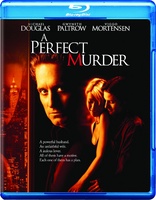A Perfect Murder Blu-ray Movie
HomeA Perfect Murder Blu-ray Movie 
Warner Bros. | 1998 | 107 min | Rated R | Jul 17, 2012Movie rating
6.7 | / 10 |
Blu-ray rating
| Users | 3.8 | |
| Reviewer | 3.0 | |
| Overall | 3.6 |
Overview
A Perfect Murder (1998)
A hotshot Wall Street trader discovers that his rich and beautiful "trophy" wife is having an affair with a bohemian artist and plots to have her murdered.
Starring: Michael Douglas, Gwyneth Paltrow, Viggo Mortensen, David Suchet, Sarita ChoudhuryDirector: Andrew Davis (I)
| Crime | Uncertain |
| Thriller | Uncertain |
| Drama | Uncertain |
Specifications
Video
Video codec: MPEG-4 AVC
Video resolution: 1080p
Aspect ratio: 1.78:1
Original aspect ratio: 1.85:1
Audio
English: DTS-HD Master Audio 5.1
French: Dolby Digital 5.1 (640 kbps)
Spanish: Dolby Digital 5.1 (640 kbps)
German: Dolby Digital 5.1 (640 kbps)
Italian: Dolby Digital 5.1 (640 kbps)
Portuguese: Dolby Digital 2.0
Subtitles
English SDH, French, German SDH, Italian SDH, Japanese, Portuguese, Spanish, Dutch
Discs
25GB Blu-ray Disc
Single disc (1 BD)
Playback
Region free
Review
Rating summary
| Movie | 2.5 | |
| Video | 4.0 | |
| Audio | 3.5 | |
| Extras | 2.5 | |
| Overall | 3.0 |
A Perfect Murder Blu-ray Movie Review
The Only Thing "Perfect" Was the Decor
Reviewed by Michael Reuben July 17, 2012A Perfect Murder is based on the same 1952 stage play by Frederick Knott that Alfred Hitchcock memorably filmed as Dial M for Murder. Hitchcock kept the play's title and much of its dialogue, and he also retained its limited setting, where most of the action was confined to a London apartment inhabited by an unfaithful wife and her homicidally vengeful husband. Despite strong performances by Grace Kelly and Ray Milland, the film gets stolen from both of them in the third act by English veteran John Williams, whose Chief Inspector Hubbard unravels the elaborate plot through a painstaking analysis of latch keys. The new version directed by Andrew Davis (The Fugitive) updates the setting to 1990s New York City and borrows a few plot points from Knott's play (the cheating wife, the vindictive husband, the business with keys), but it fails to achieve the one thing that makes Dial M for Murder a classic: suspense. The narrative rot that had been steadily infecting Hollywood had progressed to the point where even the director of The Fugitive was no longer allowed to generate tension the way Hitchcock did, that is, by giving the audience all (or nearly all) of the relevant information up front. Scripts have to be crammed with arbitrary twists, reveals and game-changers, so that, instead of investing in a character's situation (like Grace Kelly's apparently hopeless plight in Dial M for Murder), audiences have gotten used to sitting back and waiting for the next switcheroo. Indeed, Patrick Smith Kelly's script becomes such a shell game that, by the end of the film, the only thing viewers feel for is the unhappy couple's fabulous apartment. It's more interesting than any of the characters.
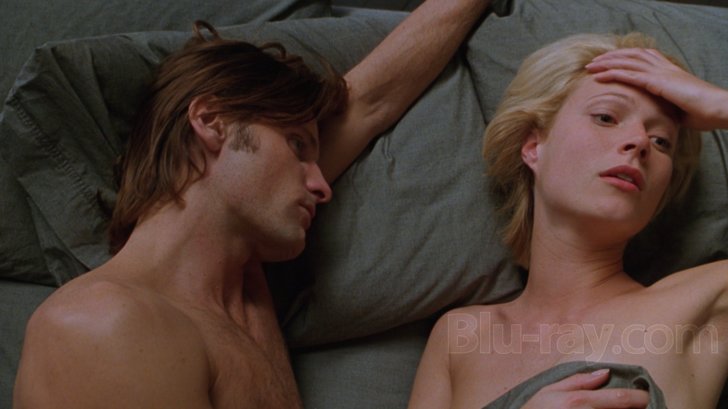
Perhaps as a nod to Psycho, the film opens outside the Brooklyn loft of artist David Shaw (Viggo Mortensen), which the camera then enters through a window to find a couple stealing an afternoon together: Shaw and his lover, Emily Taylor (Gwyneth Paltrow), the much younger "trophy" wife of international currency trader, Steven Taylor (Michael Douglas). Emily, too, has an international job; she works as a translator at the United Nations with her best friend, Raquel (Sarita Choudhury). From afternoons with Shaw, Emily returns to the lavishly appointed Fifth Avenue apartment she shares with Steven. Herself a child of wealth and privilege, Emily looks smashing on Steven's arm as they attend high-toned functions among the elite of Manhattan. One of them is a charity ball at the Metropolitan Museum of Art, where Shaw is present, and Emily is forced into the awkward position of introducing her husband to her lover. But Steven knows all about Shaw. He's the kind of Wall Street shark who prides himself on being a step ahead of everyone around him. On the pretext of looking at Shaw's work, he visits Shaw's studio and confronts him about Emily. Then he makes Shaw a shocking offer: Steven will pay the artist $500,000 to kill Emily. Details of time, place and character aside, this is the first truly major change from Knott's play and Hitchcock's film, in which the wife's lover and the hired killer were separate characters. As in Dial M for Murder, Steven has assembled blackmail material to pressure Shaw to do his bidding, but the fact that Shaw has an existing, intimate relationship with the intended victim clouds the character's portrayal, even for an actor as skilled as Viggo Mortensen (and yes, I'm leaving out a few things for the sake of first-time viewers). As for Emily, no actress on the planetónot even Meryl Streepócould convincingly play a supposedly intelligent and accomplished woman who has cluelessly fallen for both a husband and a lover willing to murder her. As in Dial M for Murder, Steven has planned in detail how his wife should be killed in their apartment while he is out for the evening, in what will appear to be a botched burglary. The plan goes awry, and the lead detective investigating the case, a Palestinian American named Karaman (David Suchet), senses that something is off but can't say what. He and Emily establish a bond, however, when she speaks to him in Arabic. By this point, though, A Perfect Murder has broken off completely from its source material to follow its own loopy path designed for short attention spans. Motivations and agendas tumble, reverse and collide with such breakneck speed that, just to take one example, Emily leaves Steven, investigates him (illegally), reports him to Det. Karaman and then reconciles with him, all in the space of what appears to be about two days. While it may be true that the rich are different from you and me (as Det. Karaman's partner reminds him), it's still a requirement of good screenwriting that a character behave with enough consistency to remain credible, and Emily fails on that point even worse than Shaw. Steven is the only member of the triangle who makes any sense, but it's one of Michael Douglas' weakest performances. Douglas' gift is to make villains and rogues appealing (think Gordon Gekko, D-Fens in Falling Down or Nick Curran in Basic Instinct). With a little more magnetism in the character, we might at least be able to see what attracted Emily in the first place, just as Ray Milland's Tony in Dial M for Murder maintained a genial exterior from the beginning to the very end. But Douglas might as well have a twirling moustache in The Perfect Murder. When he tries to smile, he looks like he's preparing to dine on someone.
A Perfect Murder Blu-ray Movie, Video Quality 
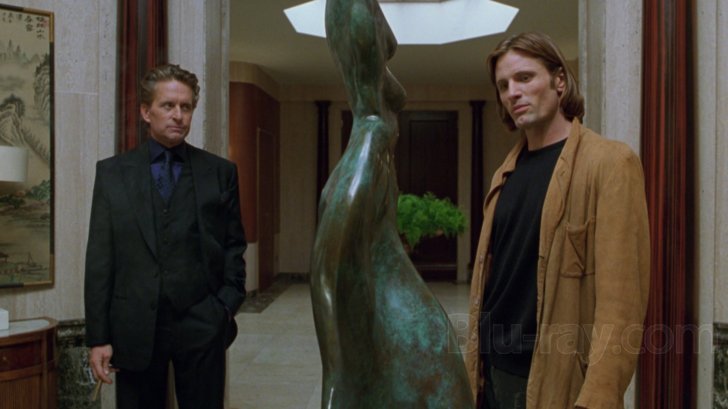
Polish cinematographer Dariusz Wolski (The Crow, Prometheus) discusses on his commentary track what a departure it was for him to shoot a film that was primarily dialogue instead of action set pieces, but he also says that director Davis shoots dialogue like an action director, with the camera constantly moving. Wolski also had to address the practical demands of shooting in places like the Metropolitan Museum of Art, whose proprietors placed severe restrictions on what lighting equipment could and couldn't be used. In the end, he delivered a rich and glossy image for the Taylors' life, taking full advantage of his background working with directors who came from the world of advertising such as Alex Proyas and Ridley Scott. In contrast to the deep hues and luxuriant surfaces of the Taylors' world, Shaw's studio and general environs are rougher and edgier (with brighter colors, especially red, as an accent), and the image has more "grit" to it. Warner's 1080p, AVC-encoded Blu-ray reproduces Wolski's imagery with a detailed and fine-grained picture that is natural and film-like. The blacks are deep, which is essential in such dark locations as Shaw's studio. The subtly rich hues in both the Taylor apartment and Steven's enormous downtown office are reproduced with understated intensity. (In his commentary, production designer Philip Rosenberg says he wanted Steven's office to reflect that its occupant was tasteful, as opposed to, say, Donald Trump.) The grain structure appears undisturbed by filtering, sharpening or other inappropriate tinkering, and I did not encounter any compression artifacts.
A Perfect Murder Blu-ray Movie, Audio Quality 
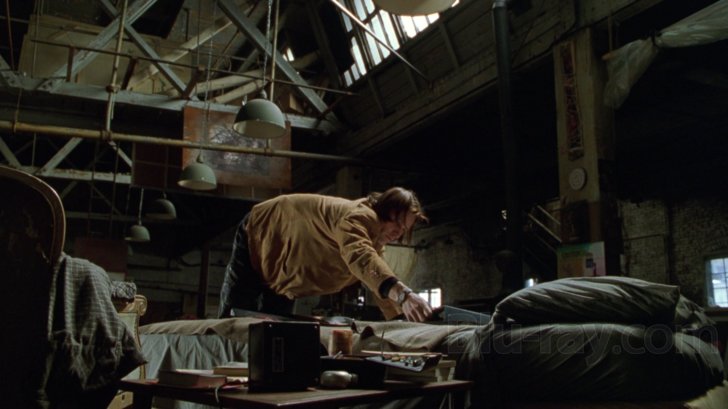
As befits a film that is primarily dialogue, A Perfect Murder's soundtrack, presented in DTS-HD MA 5.1, doesn't have any showy surround effects, but it does use the full speaker array to create a sense of ambiance in interesting environments like the museum gala attended by Steven and Emily, the subway when Emily rides it, an Amtrak train, various restaurants, a U.N. summit meeting and a crowded downtown park. The bass extension on James Newton Howard's characteristically dramatic score is solid and powerful, and the rest of its range sounds good as well. Dialogue is always clear.
A Perfect Murder Blu-ray Movie, Special Features and Extras 
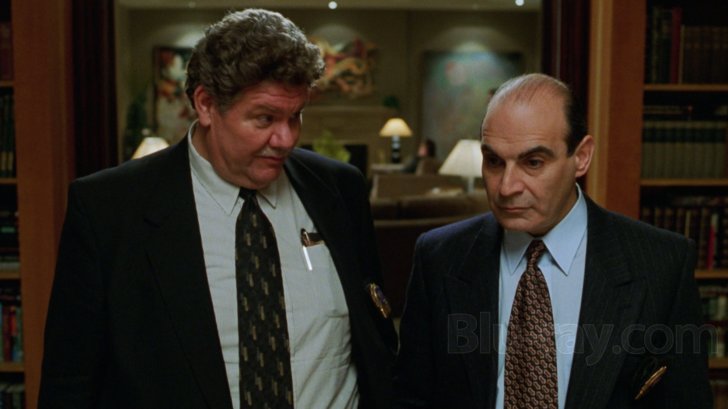
The extras have been ported over from the 1998 "special edition" DVD. Omitted are only the "Cast and Crew" bios and the "About the Story" production notes.
- Commentary by Director Andrew Davis, Screenwriter Patrick Smith Kelly and Actor Michael Douglas: Davis and Kelly were recorded together, while Douglas was recorded separately and his comments edited in later. Douglas' comments, though sparse, are the most interesting, because he discusses what attracted him to the role and his approach to it, as well as his career to that point in general. He's also frank about his dislike of the alternate ending that was tried and ultimately rejected. Davis and Kelly are far less illuminating, because they tend to point out the obvious, such as who is deceiving whom at this or that moment, although Davis drops a few useful items about locations and the casting of minor parts. It's interesting to learn, for example, that the much-remarked-on apartment occupied by the Taylors was actually a set built on a soundstage.
- Commentary by Producer Peter Macgregor-Scott, Cinematographer Dariusz Wolski, Costume Designer Ellen Mirojnick, Set Decorator Debra Schutt and Production Designer Philp Rosenberg: These are really three separate interviews cut together in alternating segments, and none of the participants sounds like they were watching the film as they discussed it. Mcgregor-Scott and Wolski focus on general logistics and lighting; Mirojnick discusses her approach to costume design generally and A Perfect Murder in particular; and Schutt and Rosenberg detail the inventive shortcuts necessary to create the film's lavish environments without going over budget. The track is sometimes dry, but it's full of practical information about the nuts and bolts of filmmaking.
- Alternate Ending (with Optional Commentary by Director Andrew Davis) (SD; 2.35:1, enhanced; 5:24): To put this in spoiler-free terms, the alternate ending reaches the same result, but with a different motivation and state of mind on the part of a key player. It's clear from Davis' commentary, and also from Douglas' and Macgregor-Scott's on the main feature, that the impetus for creating this alternative came from producers and the studio. Though Macgregor-Scott liked it, he says it tested badly with the female audience over 25. I find it so obviously inferior to the theatrical ending that it's hard to imagine there was ever a debate.
A Perfect Murder Blu-ray Movie, Overall Score and Recommendation 
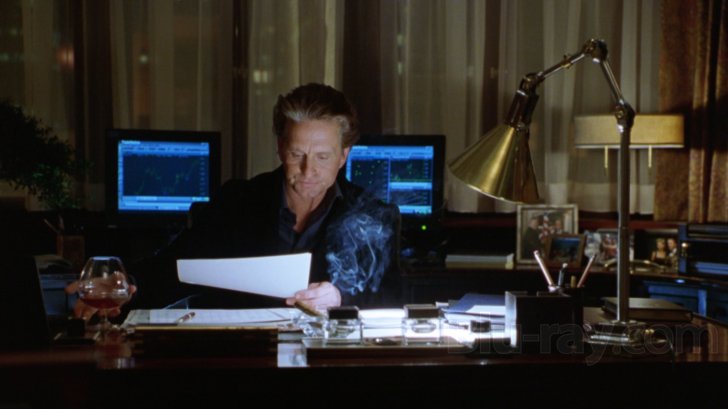
It's appropriate that the DVD and Blu-ray of A Perfect Murder should devote an entire commentary to the work of the craftspeople, because the film's surface is most of what it has going for it. The Blu-ray is recommended on its technical merits; the film is not.
Similar titles
Similar titles you might also like

Twisted
2004

Stage Fright
Warner Archive Collection
1950

No Good Deed
2002

The Thomas Crown Affair
1999

Final Analysis
1992

Mr. Brooks
2007

The Ledge
2011

Kiss the Girls
1997

Dead Again
1991

Derailed
2005

Safe Haven
2013

Blackmail
1929

The Life of David Gale
2003

Fracture
2007

Arbitrage
2012

Tony Rome
1967

Dark Crimes
2016

Frequency
2000

Don't Say a Word
2001

Obsessed
2009
